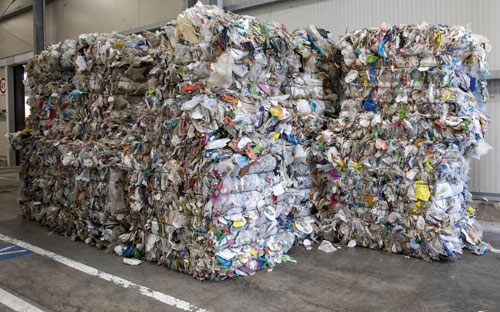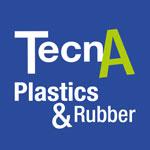 2024 marks a significant juncture for Sirmax Group, and unfolds against a backdrop of notable investments and achievements, accompanied by new challenge
2024 marks a significant juncture for Sirmax Group, and unfolds against a backdrop of notable investments and achievements, accompanied by new challenge
2024 marks a significant juncture for Sirmax Group, a company headquartered in Cittadella (Padua) specializing in the production of thermoplastic granules for different application sectors. It unfolds against a backdrop of notable investments and achievements, accompanied by new challenges.
In late 2023, the Group announced a major investment in India, a country witnessing substantial growth in the domestic market and demand for plastic products. Sirmax will build a new plant, the Group’s 14th globally and third in India, where it has been present since 2017 through Autotech-Sirmax, the joint venture with India’s Tipco Group. The new plant will be built in Hosur, in the south, and will join the two existing facilities in Palwal and Valsad, respectively in the west and north of the country. The compounds produced will cater to the e-mobility, appliances, and electrical/electronic components sectors, contributing to the growth of the Asian giant. Construction has already commenced after acquiring the land from the Indian state government of Tamil Nadu and will be completed by 2026. Production will then begin within three years, as stipulated by agreement. This is an ambitious challenge, considering that this is a greenfield plant – i.e., it will be built from scratch – with a production capacity of 20,000 tons per year.
In addition to the construction of the new plant, the project includes the expansion of the existing Palwal plant, located near India’s largest automotive district, to increase its production capacity by 15,000 tons per year. To accomplish this, 7,000 square meters of space will be added, incorporating four new production lines with state-of-the-art extruders for high speed and higher output, new warehouses with automated material handling systems, and laboratory equipment. The total investment is around $10 million and is considered strategic as it aims to meet the growing demand for thermoplastic compounds in the region. Sirmax’s goal is to increase its production capacity in India to over 60,000 tons per year.
The operation is part of the broader strategy of reinforcing foreign subsidiaries, which touches two other important markets for the Cittadella-based group. Firstly, Brazil, where Sirmax this year has produced around 12,000 tons, exhausting its production capacity. An investment has been made for an additional third line that will allow the plant to reach 20,000 tons – a size that Sirmax considers substantial in the context of the Brazilian polypropylene compound market, which is worth around 250,000 tons. In the United States, Sirmax has an industrial compendium that spans 350,000 square meters and hosts a polypropylene and a polyolefin mechanical recycling factory, both of which are to be tripled within ten years. Additionally, within the next five years, Sirmax plans to construct an engineering polymers factory – a product line currently manufactured in Europe and India but not yet in the United States, where it is imported from European plants. Amidst these expansions, Sirmax is also thinking about business development, exploring potential acquisitions or joint ventures. “There are opportunities in the market,” says Sirmax President and CEO Massimo Pavin, “that the company is already assessing, and I do not exclude that over the next five years we may also proceed with growth supported by external lines.”
 As far as Europe is concerned, the situation on the old continent is different because there is a general decline in demand in the plastics market, which is not experiencing an entirely prosperous time. However, despite the slowdown, some sectors seem to promise significant development opportunities. Especially noteworthy is the automotive sector, which proved highly favourable for Sirmax in 2023, driven in part by some transformative shifts. These include the need to reduce car weight by replacing metal components with plastic, as well as the adoption of new materials featuring a higher proportion of recycled plastic. Sirmax has made substantial strategic investments in this crucial process, which is integral to achieving a more sustainable supply chain. The company allocated funds, totalling 9 million euros, to the Aurora project, which is financially supported by Next Generation EU funds. This initiative involves collaborative efforts with Padua University, Belgium’s Ghent University, and La Sapienza University in Rome. For the industrialization phase, Sirmax is utilizing post-consumer recycling and compounding plants located in Europe.
As far as Europe is concerned, the situation on the old continent is different because there is a general decline in demand in the plastics market, which is not experiencing an entirely prosperous time. However, despite the slowdown, some sectors seem to promise significant development opportunities. Especially noteworthy is the automotive sector, which proved highly favourable for Sirmax in 2023, driven in part by some transformative shifts. These include the need to reduce car weight by replacing metal components with plastic, as well as the adoption of new materials featuring a higher proportion of recycled plastic. Sirmax has made substantial strategic investments in this crucial process, which is integral to achieving a more sustainable supply chain. The company allocated funds, totalling 9 million euros, to the Aurora project, which is financially supported by Next Generation EU funds. This initiative involves collaborative efforts with Padua University, Belgium’s Ghent University, and La Sapienza University in Rome. For the industrialization phase, Sirmax is utilizing post-consumer recycling and compounding plants located in Europe.
Specifically, the Aurora project aims to upcycle and transform polypropylene from urban waste collection into a new generation of high-performance compounds through the development of an advanced production system. The project involves the production of a highly innovative circular polypropylene compound that is not on the market today and will be used to mould panels for car interiors. The material created will be longer-lasting, chemically stable, and will feature reduced emissions comparable with panels made from virgin polypropylene. Algorithms and sensor technology implemented in the injection moulding process will increase production chain efficiency by 30% while also minimizing waste.
The Aurora project is scheduled to span 36 months, utilizing Sirmax’s laboratories and research centres. The focus will be on specific areas, including the sorting of urban plastic waste, washing (deodorization, de-inking) granulation, compounding with additives and fillers, and the injection moulding of final components. Through this project, Sirmax aims to address a gap in the current state of the art. Currently, the recycling process for polypropylene lacks the capability for upcycling, preventing its use in high value-added applications like automotive interiors. With the envisioned innovations and an all-mechanical recycling process, Sirmax aspires to produce new compounds containing at least 50% recycled polypropylene (today’s formulations fall as low as 30%) from flexible films sourced from urban waste collection. The resulting high-performance compound can then be used in the injection moulding of components for automotive interiors. This will provide outstanding environmental performance when compared to 100% virgin raw materials.
Another focal point for the current year will be advancements in injection moulding technology. Smart Mold, a spin-off in which Sirmax holds a 50% stake, has developed GAPP (Gas-Assisted Push Pull), a process technology which is instrumental in significantly mitigating the impact of weld lines in injection moulding. In many applications, the ability to increase recycled plastic content is hindered by the weakening of weld lines, and GAPP technology can play a key role in enabling greater use of recycled plastic in glass fiber-reinforced compounds. Specifically, GAPP promotes the interpenetration of weld line flow fronts in a way that changes the shape of the interface, promotes inter-diffusion between flow fronts, and realigns the reinforcing fibers.
The 2023-2025 business plan that Sirmax presented in June is highly complex, but the company is already looking further into the future, adopting a vision consistent with what is happening right now. “The market trend is to be ‘glocal’”, continues President Pavin. “That means remaining global while thoroughly regionalizing supply chains. Moreover, the last few years have seen a rapid evolution marked by aggregations, mergers, and alliances. All these factors have changed the rules of the game, and we now find ourselves in a league with fewer players – a profoundly different position compared to the past. In order to continue playing in this league, Sirmax could not avoid following this trend.” The adopted strategy is geared towards reinforcing growth, with the clear objective of doubling turnover within a five-year period.






